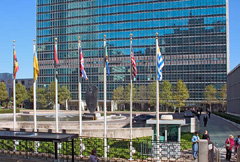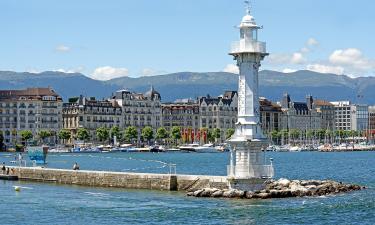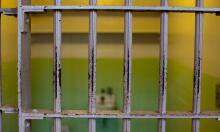United Nations at the crossroads
The UN structure and functions have had their day. 180 delegates are deciding what to do next
 UN Summit opened in New York. This time it is attached to the 60th anniversary of the United Nations Organization. The main issue on the agenda is reforming UN itself and its Security Council in the first place. Besides, leaders of the 180 countries will have to define a new role of the UN in the world, which has changed so much since the organization was formed. The UN has lost its ruling position. However, it is still the only political organization in the world that unites almost all of the countries.
UN Summit opened in New York. This time it is attached to the 60th anniversary of the United Nations Organization. The main issue on the agenda is reforming UN itself and its Security Council in the first place. Besides, leaders of the 180 countries will have to define a new role of the UN in the world, which has changed so much since the organization was formed. The UN has lost its ruling position. However, it is still the only political organization in the world that unites almost all of the countries.
The idea of creating the UN dates back to the end of the World War II. It belonged to the countries representing anti-Hitler coalition. The organization was meant to replace League of Nations that was formed after the World War I and had discredited itself by that time.
The main inspirer of League of Nations was the US president Woodrow Wilson. However, the US itself refused to join the League. In the 1930s Japan followed by Germany and Italy left the organization in emphatic manner. The powers of League of Nations were rather vague and it could not really influence the situation in the world. That is why it could not prevent the World War II.
When it became clear that the Nazi Germany and the militarist Japan would be defeated the future winners - the USSR, the US, Great Britain, France and their allies – started discussing the project of organization that could provide for the peaceful development of the planet and effectively prevent the wars. 0n 25 April 1945 delegates of 50 countries met in San Francisco at the United Nations Conference on International Organization. Those delegates drew up the United Nations Charter consisting of 111 chapters. The representatives of 50 countries signed the Charter on 26 June 1945. 0n 24 October 1945 the United Nations officially came into existence, with 51 countries as its members. The USSR had three votes – Ukrainian SSR and Byelorussian SSR occupied separate places.
At first there were two levels within the UN: for the superpowers and for all the rest. All of the UN members formed the General Assembly, but the major decisions concerning the international security were taken by the Security Council. The USSR, the US, Great Britain, France and China became its permanent members with the right to veto any decision taken by the Security Council. Apart from them it included ten representatives from different parts of the planet elected every two years. The first meeting of the UN Security Council took place in London in 1946. In 1949 the UN headquarters in New York was built. Some of the UN commissions are located in other cities like Geneva, Paris, and Stockholm, the International Court of Justice - in The Hague.
The number of the UN members was constantly increasing. India and Pakistan after becoming independent joined the UN in 1947. They were followed by other countries that were freed from colonial dependence. 1960 was called the Year of Africa. More than 15 African countries declared their independence and joinedthe United Nations during that year.
In 1971 the Chinese confusion was solved. The vote was given to the representative of The Chinese People's Republic, whereas Taiwan's representative had been voting on behalf of China before. 1970s were marked by the independence of the really small insular states of the Oceania and Caribbean. The process of giving independence to former colonies has not finished yet. At the moment there are 191 countries that are included in the UN.
As far as Europe is concerned, at first members of the anti-Hitler coalition including Poland, Czech Republic, Yugoslavia, Greece, Holland, Denmark and Norway joined the EU. A year later Sweden followed. 14 December 1955 can be called the day of mass acceptance of the Europeans. On this day neutral Spain, Portugal and Ireland and also former German allies Italy, Austria, Hungary, Rumania, Bulgaria and Finland joined the UN. The main Asian ally of the Nazis Japan was accepted into the organization a year later.
Germany had to wait. The whole question rested on German Democratic Republic and Federal Republic of Germany unwilling to accept each other until 1972. After that both countries that would be reunited in 1990 were welcomed by the EU. Korea had to wait even longer. Democratic People's Republic of Korea and South Korea joined the UN in September 1991 together with the new independent Baltic republics. The USSR, Yugoslavia and Czechoslovakia collapses led to the further expansion of the UN. Russia became the Soviet Union's assignee in the UN Security Council.
Still, at the turn of the centuries there were two countries in the Old World that were not the members of the UN. One of them was Yugoslavia as a part of Serbia and Montenegro. In 1990s sanctions were applied to it and it was not clear whether it could be considered the Socialist Federal Republic of Yugoslavia assignee. Finally, in 2000, right after the overthrow of Slobodan Milošević, the UN opened for Yugoslavia. The one who remained was the always-neutral Switzerland that was not the member of the EU, although numerous UN commissions were located in Geneva including World Health Organization. However, even the cautious Swiss approved the idea at the referendum and joined the UN.
As the number of the UN members was growing the functions and the two-step system of the organization became anachronistic. Besides, as the world slowly turned into unidirectional, the US and its allies stopped taking the UN into consideration, acting for it solely or together with NATO. Throw in Germany, Japan and Italy that turned into economic giants as well as India, Brazil, Mexico and some other countries that are rapidly developing. These countries point to the fact that their political authority does not equal economic one. That is why they are demanding the place in the UN Security Council with the right to veto. The whole regions, Africa for instance, are insisting on the same. The way the problem will be solved depends on the representatives of 180 countries that are meeting at the NY Summit.
Vadim Truhachev
Subscribe to Pravda.Ru Telegram channel, Facebook, RSS!




